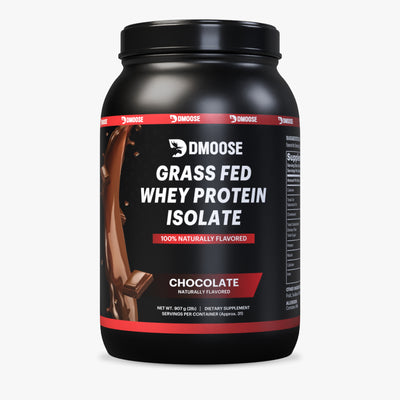Struggling with diets that leave you drained, hungry, or constantly counting calories? The Mediterranean diet offers a refreshing change—delicious, satisfying meals that naturally support weight loss and long-term health.
It replaces restriction with balance, focusing on real food like fresh vegetables, heart-healthy fats, lean proteins, and whole grains. There’s no need to give up carbs or skip meals. This way of eating helps manage cravings, stabilizes blood sugar, and reduces the risk of heart disease and obesity.
With this simple 7-day plan, you'll eat well, feel fuller for longer, and finally enjoy a healthy routine that doesn’t feel like a chore.
You can speed up the fat-burning process by pairing this diet with high-quality Fat Burner Supplements that support metabolism and energy levels.
Benefits of the Mediterranean Diet

The Mediterranean diet is widely recognized for its heart-protective properties and long-term health benefits. Backed by science, this approach to eating can support weight loss, lower cholesterol, and reduce the risk of cardiovascular disease.
Here are some of the key health benefits associated with the Mediterranean diet:
1. Promotes Healthy Weight Loss
A study in the Reviews in Endocrine and Metabolic Disorders found that individuals following the Mediterranean diet for six months experienced improvements in weight control and obesity prevention. Thanks to its emphasis on nutrient-rich, low-calorie foods like fruits, vegetables, legumes, and whole grains, it supports fat loss without extreme restriction.
2. Improves Cholesterol Levels
The Mediterranean diet encourages the consumption of healthy fats such as olive oil and nuts, which can help reduce LDL (bad) cholesterol and boost HDL (good) cholesterol. According to research, this dietary pattern significantly enhances HDL functionality, lowering the risk of heart disease.
3. Lowers the Risk of Heart Disease
Heart disease is the leading global cause of death, claiming 17.9 million lives each year, according to the World Health Organization. By improving cholesterol profiles and reducing inflammation, the Mediterranean diet can help lower cardiovascular risk. It’s rich in heart-friendly components like fiber, omega-3s, and antioxidants. See more on the mechanisms and prevention strategies.
4. Supports Brain Health
The Mediterranean diet’s high antioxidant content plays a vital role in cognitive protection. Research published in Neurology shows a reduced risk of Alzheimer’s disease in those who consistently follow the diet. The anti-inflammatory and neuroprotective effects of olive oil, leafy greens, berries, and omega-3s contribute to better memory and brain function as you age.
With its rich combination of wholesome ingredients, the Mediterranean diet offers a sustainable way to enhance overall well-being, from cardiovascular support to cognitive resilience.
Ways to Incorporate the Mediterranean Diet

The Mediterranean diet isn’t a strict formula—it’s a flexible, culturally rooted approach to eating inspired by the traditional food habits of countries bordering the Mediterranean Sea. It emphasizes nutrient-rich, minimally processed foods that support overall wellness and long-term health.
Known for its wide-ranging health benefits, this diet can support weight loss, lower blood pressure and cholesterol, and reduce the risk of heart disease, stroke, cancer, and other chronic illnesses. The best part? It’s practical, enjoyable, and easy to adopt with a few intentional changes.
Below are five simple ways to start incorporating Mediterranean diet principles into your everyday meals.
1. Prioritize Fruits and Vegetables
Plant-based foods form the foundation of the Mediterranean diet. Aim for at least five servings of fruits and vegetables daily. Choose a colorful variety to maximize nutrient intake, and make sure to include some in every meal—whether as a side, a main ingredient, or a snack.
2. Choose Whole Grains Over Refined
Swap out white bread, pasta, and rice for whole-grain alternatives like quinoa, oats, bulgur, and brown rice. Whole grains are rich in fiber, help you feel satisfied longer, and contribute to better digestive and heart health.
3. Use Healthy Fats Wisely
Healthy fats play a central role in this diet. Incorporate sources like extra virgin olive oil, nuts, seeds, and avocados in place of saturated and trans fats. These fats support heart health and help reduce inflammation.
Related Article: Omega 3 Vs Omega-3-6-9: What Do the Experts Say?
4. Eat Fish and Seafood Twice a Week
Fish and seafood are excellent sources of lean protein and omega-3 fatty acids. Include fatty fish like salmon, sardines, or mackerel in your meals twice per week. For plant-based options, flaxseeds, walnuts, and chia seeds can also provide beneficial omega-3s.
5. Stay Hydrated with Water and Antioxidant-Rich Beverages
Hydration is key. Water should be your primary beverage, but unsweetened coffee and tea are also encouraged thanks to their antioxidant properties. Avoid sugary sodas and juices that can derail your health goals.
Tips for Beginners to Follow the Mediterranean Diet
Adopting a healthier lifestyle starts with sustainable changes to how you eat—and the Mediterranean diet is one of the most effective and enjoyable ways to do that. If you're new to this eating pattern, the tips below will help you ease into it with confidence and clarity:
- Fill half your plate with fruits and vegetables. Prioritize seasonal, colorful produce at every meal to meet daily nutrient needs and support digestion, immunity, and heart health.
- Choose whole grains over refined options. Whole grains like oats, brown rice, and quinoa are high in fiber and help maintain energy levels, unlike nutrient-stripped refined grains.
- Incorporate healthy fats. Use olive oil for cooking, snack on nuts, and add avocado to meals. These fats support heart health and help absorb fat-soluble vitamins.
- Introduce changes gradually. Start by swapping processed snacks with fruit, drinking water or herbal tea instead of sugary drinks, and choosing lean proteins like chicken, legumes, or fish over red meats.
- Include fish and, if desired, moderate red wine. Fatty fish like salmon and sardines provide essential omega-3s. A small amount of red wine with meals may offer antioxidant benefits—but only if it's already part of your lifestyle.
- Stay active. Regular exercise enhances the benefits of the Mediterranean diet by supporting metabolism, cardiovascular health, and weight management.
- Find simple, enjoyable recipes. Consistency comes from convenience and taste. Choose meals you enjoy and build a routine around three balanced meals and nutritious snacks daily.
Starting with small, consistent changes can make following the Mediterranean diet feel natural and sustainable over time.
Related Article: Vitamins and Minerals That You Should Take Daily
Mediterranean Diet Foods List

The Mediterranean diet provides a diverse and flavorful range of whole foods that support health, energy, and well-being. It emphasizes fresh, minimally processed ingredients that are rich in nutrients. Below is a categorized list of key foods that make up the foundation of this dietary pattern.
Carbohydrates

Complex carbohydrates form an essential part of the Mediterranean diet by providing long-lasting energy and dietary fiber. Whole grains like oats, quinoa, and barley help regulate blood sugar levels and improve digestion. Beans and legumes, such as chickpeas and black beans, are excellent plant-based protein sources that also support gut health.
The following list includes healthy carbohydrate options commonly consumed in Mediterranean cuisine:
- Oats
- Quinoa
- Chickpeas
- Black beans
- Brown rice
- Barley
- Whole wheat bread
- Multigrain bread
- Couscous
Fruits

Fruits are a natural source of antioxidants, vitamins, and hydration. Mediterranean diets often include fresh fruits as snacks or dessert alternatives, helping to satisfy sweet cravings healthily. From berries to figs, these nutrient-dense foods support immune function and cellular repair.
Here are some of the most popular fruits incorporated into a Mediterranean-style diet:
- Apples
- Bananas
- Apricots
- Dates
- Figs
- Berries
- Cherries
- Plums
- Peaches
Vegetables

Vegetables are the cornerstone of the Mediterranean diet, loaded with fiber, vitamins, and anti-inflammatory compounds. Eating a wide variety of vegetables daily helps support digestion, regulate weight, and reduce chronic disease risk. Ingredients like tomatoes, leafy greens, and garlic are commonly featured in traditional Mediterranean meals.
Below are some of the most commonly used vegetables in Mediterranean cooking:
- Garlic
- Onions
- Leafy green vegetables
- Tomatoes
- Broccoli
- Bell Peppers
- Mushrooms
- Cabbage
- Carrots
- Eggplant
- Peas
- Zucchini
Protein

The Mediterranean diet encourages lean, high-quality protein sources to support muscle health and metabolic function. Seafood is especially emphasized due to its omega-3 fatty acids and heart health benefits. Plant-based proteins like lentils and beans also play a vital role in providing nutrients while reducing reliance on red meat.
The list below highlights key protein sources commonly used in the Mediterranean diet:
- Seafood
- Kidney beans
- Lentils
- Eggs
- Poultry
Fats

Healthy fats are a key feature of the Mediterranean diet, helping to reduce inflammation and support cardiovascular health. Instead of saturated fats, this diet includes unsaturated sources like olive oil, avocados, and nuts. These fats also enhance the absorption of fat-soluble vitamins and improve satiety after meals.
Here are some of the most recommended healthy fat sources in the Mediterranean diet:
- Avocados
- Walnuts
- Almonds
- Flax
- Pumpkin seeds
- Sunflower seeds
- Peanuts
- Extra virgin olive oil
- Avocado oil
Dairy

Dairy in the Mediterranean diet is consumed in moderation, focusing on high-quality options that provide calcium and probiotics. Fermented dairy like Greek yogurt supports gut health, while cheeses offer protein and essential minerals. These are often included in small portions alongside fruits, grains, or vegetables for balanced meals.
Common Mediterranean dairy options include the following:
- Greek yogurt
- Low fat milk
- Cheese (cottage, ricotta, parmesan, and mozzarella)
7-Day Mediterranean Diet Meal Plan
| Day 1 | ||
|---|---|---|
| Meal | Items | Calories |
| Breakfast | Greek yogurt, blueberries, chopped almonds & walnuts | 292 |
| A.M. Snack | 1 small banana | 50 |
| Lunch | Roasted vegetables, hummus sandwich | 325 |
| P.M. Snack | 1 large apple | 120 |
| Dinner | Roasted salmon, 1 cup vegetables | 422 |
Total Calories: 1,209
| Day 2 | ||
|---|---|---|
| Meal | Items | Calories |
| Breakfast | Overnight oats, berries, low-fat milk | 240 |
| A.M. Snack | Low-fat yogurt, baby banana | 100 |
| Lunch | Vegetable soup, boiled chicken, garlic bread | 381 |
| P.M. Snack | 1 medium orange | 62 |
| Dinner | Vegetarian egg casserole, mixed greens, avocado | 470 |
Total Calories: 1,253
| Day 3 | ||
|---|---|---|
| Meal | Items | Calories |
| Breakfast | Rolled oats, fruits, cinnamon | 240 |
| A.M. Snack | Nonfat plain Greek yogurt | 66 |
| Lunch | Vegan superfood Buddha bowl | 380 |
| P.M. Snack | 8 almonds, 1 medium apple | 90 |
| Dinner | Vegetarian egg casserole, roasted vegetables, 8 olives | 484 |
Total Calories: 1,260
| Day 4 | ||
|---|---|---|
| Meal | Items | Calories |
| Breakfast | Bran bread, avocado spread, salmon omelet, tangerine | 300 |
| A.M. Snack | Greek yogurt, almonds | 105 |
| Lunch | Superfood Buddha bowl | 381 |
| P.M. Snack | Strawberries & blueberries | 66 |
| Dinner | Kidney bean salad, roasted chicken breast | 370 |
Total Calories: 1,222
| Day 5 | ||
|---|---|---|
| Meal | Items | Calories |
| Breakfast | Overnight oats, fruits | 240 |
| A.M. Snack | 1 medium apple | 70 |
| Lunch | Superfood salad | 350 |
| P.M. Snack | Strawberries, almonds | 100 |
| Dinner | Shrimp salad, avocado bagel toast | 463 |
Total Calories: 1,223
| Day 6 | ||
|---|---|---|
| Meal | Items | Calories |
| Breakfast | Overnight oats, fruits | 240 |
| A.M. Snack | Plain Greek yogurt | 70 |
| Lunch | Roasted vegetables, hummus sandwich | 325 |
| P.M. Snack | 1 medium banana | 75 |
| Dinner | Stuffed sweet potato, roasted vegetables | 472 |
Total Calories: 1,182
| Day 7 | ||
|---|---|---|
| Meal | Items | Calories |
| Breakfast | Greek yogurt, blackberries, strawberries, walnuts | 292 |
| A.M. Snack | 1 medium apple | 75 |
| Lunch | Roasted vegetables, hummus sandwich | 325 |
| P.M. Snack | Vegetable smoothie, baby banana | 70 |
| Dinner | Hot smoked salmon, freekeh salad, avocado | 425 |
Total Calories: 1,187
Final Words
The Mediterranean diet offers a range of impressive health benefits, including reducing the risk of heart disease and stroke. The diet is high in fruits, vegetables, legumes, whole grains, fish, and monounsaturated fats, and low in saturated fat and red meat.
Many delicious recipes fit into a Mediterranean diet, so sticking with this healthy eating plan is easy. If you want to start enjoying these health benefits, give the Mediterranean diet a try! The diet emphasizes more on modifying your lifestyle. To gain the most from this diet, make sure to engage in regular physical activity for at least 30 minutes a day.
Reading List
Article Sources
- Davis, Courtney, et al. “Definition of the Mediterranean Diet; A Literature Review.” Nutrients, vol. 7, no. 11, Nov. 2015, pp. 9139–53. mdpi.com, https://doi.org/10.3390/nu7115459.
- Mentella, Maria Chiara, et al. “Cancer and Mediterranean Diet: A Review.” Nutrients, vol. 11, no. 9, Sept. 2019, p. 2059. mdpi.com, https://doi.org/10.3390/nu11092059.
- Martínez-González, Miguel A., et al. “Benefits of the Mediterranean Diet: Insights From the PREDIMED Study.” Progress in Cardiovascular Diseases, vol. 58, no. 1, July 2015, pp. 50–60. ScienceDirect, https://doi.org/10.1016/j.pcad.2015.04.003.
- Valeria Tosti, MD, Beatrice Bertozzi, PhD, Luigi Fontana, MD, PhD, Health Benefits of the Mediterranean Diet: Metabolic and Molecular Mechanisms, The Journals of Gerontology: Series A, Volume 73, Issue 3, March 2018, Pages 318–326, https://doi.org/10.1093/gerona/glx227
- Martín-Peláez, Sandra, et al. “Mediterranean Diet Effects on Type 2 Diabetes Prevention, Disease Progression, and Related Mechanisms. A Review.” Nutrients, vol. 12, no. 8, Aug. 2020, p. 2236. mdpi.com, https://doi.org/10.3390/nu12082236.
- Martínez-González, Miguel A., et al. “The Mediterranean Diet and Cardiovascular Health.” Circulation Research, vol. 124, no. 5, Mar. 2019, pp. 779–98. org (Atypon), https://doi.org/10.1161/CIRCRESAHA.118.313348.
- Estruch, Ramon, and Emilio Ros. “The Role of the Mediterranean Diet on Weight Loss and Obesity-Related Diseases.” Reviews in Endocrine and Metabolic Disorders, vol. 21, no. 3, Sept. 2020, pp. 315–27. Springer Link, https://doi.org/10.1007/s11154-020-09579-0.
- Grao-Cruces, Elena, et al. “High-Density Lipoproteins and Mediterranean Diet: A Systematic Review.” Nutrients, vol. 13, no. 3, Mar. 2021, p. 955. mdpi.com, https://doi.org/10.3390/nu13030955.
- Dontas, Anastasios S., et al. “Mediterranean Diet and Prevention of Coronary Heart Disease in the Elderly.” Clinical Interventions in Aging, vol. 2, no. 1, Mar. 2007, pp. 109–15. PubMed Central, https://www.ncbi.nlm.nih.gov/pmc/articles/PMC2684076/.
- Ballarini, Tommaso, et al. “Mediterranean Diet, Alzheimer Disease Biomarkers, and Brain Atrophy in Old Age.” Neurology, vol. 96, no. 24, June 2021, pp. e2920–32. neurology.org, https://doi.org/10.1212/WNL.0000000000012067.











